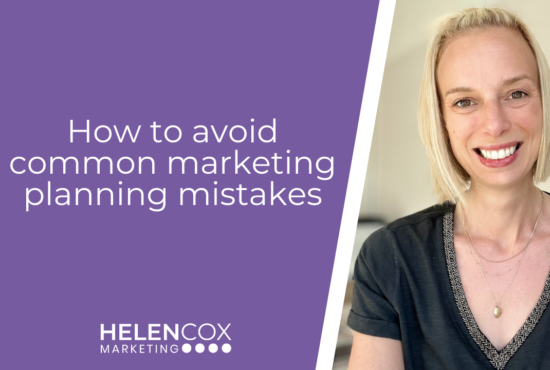Key components to your architectural practice’s marketing strategy
It doesn’t matter what industry you work within; it has to be said that in the past two years, all the things that Covid has brought have been tricky for business. Whilst life is returning somewhat to the normal we had before it all started, things are not quite the same.
Many businesses and professional services have realised that the time has come to try and recover some of the things they have lost due to the pandemic. If this is true for you, you will want to think more about your marketing and how you can try and make it work.
The only issue is that marketing and a marketing strategy can be tricky. To help you to where you need to be in the future, I have put together some of the critical components of your architectural practice’s marketing strategy.
Think about your architectural practice’s story
The first thing that you need to think about is your own story. What defines your practice, and what makes you unique compared to other architectural practice’s? You want to try and keep this particular narrative as short as you can, although it still needs to be compelling and contain all the information that you want those reading to know.
Go old-fashioned with networking
Online marketing is a key part of marketing, but this doesn’t mean you should ignore other, more old-fashioned approaches. One example of this is networking. Networking can help to ensure that your name gets out there and is recognised.
The important thing to remember with networking is that it doesn’t always have to be face-to-face. Sometimes, you can just network virtually. It might not always feel like it should work as much, but I can assure you it does.
Check over your architectural practice’s website
One of the key aspects of your online marketing presence is your website. A great website can help catapult your business and how it appears online. When you think of it this way, it’s clear that you need to take the time to think about your website and how it showcases what you can do.
A website should, above everything else, work well. It needs to load quickly and be nice and easy for the majority of users to navigate. Not only this, but websites also need to be great to look at too. It should have lots of high-quality images, and the content on the website needs to be short, concise and easy to read and understand.
It also needs to be put together to promote SEO, and all the content on the website should be up to date, accurate and correct.
Invest in quality visuals
Visuals are something that many architecture practice’s may overlook. However, when your whole service is to help people have the building they want, it makes even more sense for visuals to be up there with what you need to focus on.
This may mean you need to consider investing in photography for your website and social media profiles. This means you can put the best impression forward for what you can do.
Know your architectural practice’s audience
When marketing your architectural practice, you need to make sure you know who you are trying to sell to. Else, things are going to be much harder to do. When you take the time to really know and understand your audience, you can create the right messages for them.
Have good quality content
Content is a hugely valuable part of marketing, which means that you will need to take the time to make sure that your website, social media and blog posts have content of the best quality possible.
The thing to remember with content is that it not only needs to be written in a way that will appeal (and do exactly what you want it to do) but is also posted to keep people interested.
You want to make sure you take the time to plan what you are going to post and have a few blogs ready to go to keep up your steam. That way, your blog isn’t going to look uncared for or that it is dwindling.
Of course, the most challenging thing about this approach is that this can make it hard for you to keep the content as varied as possible. However, it is possible to do. You can change things up, offering some practical advice, opinion and thought pieces, news, current issues and perhaps case studies or interviews on recent projects you have completed.
Use social media
Social media is one of the best ways to promote architectural practice’s; however, it can be hard to master. Rather than just giving up, taking the time to use social media to your advantage is essential.
The good news is that there are lots of ways that you can use social media to your advantage. You can share examples of projects you have worked on that impact your network and how it works for you.
The one thing to remember about social media is that you must ensure you are committed to using it. You want to try and regularly post and check your feeds and what has been commented on, liked or shared. That way, you will ensure that you are seen as a architectural practice that is there for their clients and that you are active.
Utilise experts
Whilst there are plenty of parts of marketing that you can do yourself, and over time, you can learn more about, the idea of expert help is always a benefit. There are experts who can help you create blogs, take photos and even plan your marketing efforts. All of these will help your architectural practice get where you want it to be in the future.
No matter how you look at it, marketing is something you need to try and make sure you do. Marketing can help you recover from the hard time’s many businesses have had and get yourself back on the right trajectory.
Some of my services:
Outsourced Marketing Management
Marketing Consultancy Services
Need help?
If you would like help with your marketing then bringing on a marketing consultant with a fresh pair of eyes can make all the difference. I work with B2B businesses and professional service firms in London, Kent, UK and Europe as well as specialising as a Legal Marketing Consultant. Please get in touch or book a free 30-minute consultation.




